Basically the question “What is the best VPN for streaming?” can be answered relatively easily. This is of course any VPN that is fast enough to meet the minimum requirements of streaming providers. Of course, it depends strongly on the image quality you want to stream. A stream in SD needs much less bandwidth than one in HD or even 4K.
Most VPNs can handle lower quality. However, top VPNs can also handle high resolutions, and they are usually no more expensive than the competition. If you have an excellent provider, then you will also experience low latency and you don’t have to bother with buffering.
In the ideal case your VPN can bypass the so-called (and awful) geoblocking. This will unblock Netflix US or the BBC iPlayer as well as itv, Amazon Prime and so on. If you are abroad, you can also use it to unlock the content of the country you are living in. Many broadcasts are usually without restrictions, but there are also some that use geoblocking.
It is also desirable that several devices can be connected to the VPN simultaneously. Good VPNs also provide clients or apps for all major operating systems. For me personally, only vendors that also offer a Linux client are an option. Very welcome are services that have built-in protection against malware, trackers and phishing or an ad blocker.
NordVPN – superb for streaming*
Such services exist and they do not cost a fortune. For example, you can get NordVPN for about €3 per month and there is even a Linux client that works with the Raspberry Pi. This is convenient because you can easily build your own VPN router with it.
Sufficient speed for streaming
Of course, your internet speed must be fast enough to use the streaming providers. But the servers of the VPN provider must also be fast enough. Basically, the further away your location is from the VPN server, the more critical it could be.
It also depends on the VPN protocol. Some are faster than others. Meanwhile, NordVPN offers the very fast VPN protocol WireGuard in all apps. It is called NordLynx.
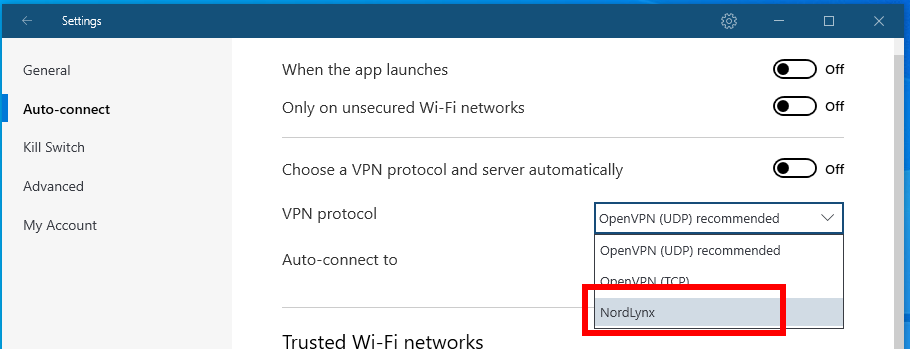
OpenVPN speeds are also sufficient with the provider, but speed tests have shown that WireGuard is even faster. Here is a test from Europe to Los Angeles – original speed is 50 Mbps.
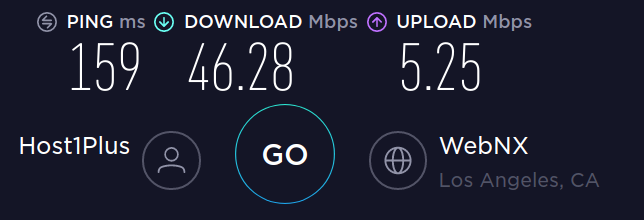
This is easily enough for streaming in high quality. You could use it to unlock Netflix US from Europe, for example.
PIA is also a provider that meanwhile offers WireGuard in all apps.
That’s important: With NordVPN and PIA you get access to the WireGuard protocol on Linux, Android, macOS, Windows and iOS.
By the way: It is not that difficult to build a WireGuard server yourself. However, you are less flexible because you can’t just change the country. This means that bypassing geoblocking is not possible. This does not apply if you are abroad and want to connect to your home.
More streaming – bypass geoblocking
The streaming offers in Europe are excellent. Nevertheless, there is so-called geoblocking in every country and therefore certain contents are not available to you. The archive of Netflix US for example is the largest. If you want to access it from Europe, you need an IP address from the USA. So, you use your VPN and connect to a server in the USA.
Why does geoblocking even exist? This is of course about money. It has something to do with licenses. I find it bizarre, too. There is so much good stuff on BBC iPlayer and itv but you can’t watch it outside the UK – well Zattoo Switzerland offers BBC and itv. But if you are not living in Switzerland you need a VPN with servers in the country.
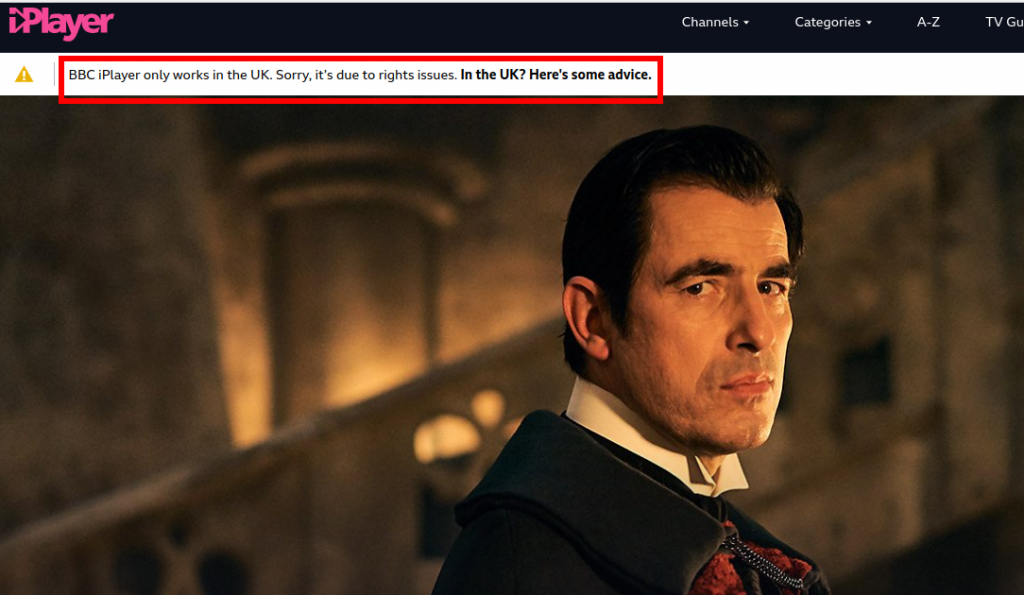
The thing is … not all VPNs can bypass geoblocking. It is a constant battle between streaming providers and VPN providers. IP addresses are put on blacklists and so on. VPN providers with few resources or smaller networks have problems to win this race. A good deal of give up and simply say that they cannot bypass geoblocking. Superb VPNs such as NordVPN can unblock almost all streaming providers.
Bypass geoblocking with NordVPN*
But also Surfshark* and Private Internet Access (PIA)* are very suitable for the task.
Streaming while travelling
By the way, there’s another reason why you might want to bypass that annoying geoblocking. If you travel to another country, you may not have access to your Netflix account, even if you pay for it – annoying, isn’t it?
Again, a VPN can help you bypass geoblocking. But that is not the only reason why you should take a VPN with you when you travel. I will explain further down how a VPN can help you when you travel (shh … it protects you!).
Streaming with multiple devices simultaneously
Now you may have several people in your household and everyone wants to stream something different. With a good VPN you are allowed to establish several simultaneous connections. NordVPN for example allows 6 simultaneous connections and also the installation on a router is allowed. A router counts as one device.
With PIA you can connect 10 devices simultaneously. Surfshark is best at this point because there is no limit to the number of simultaneous connections. These 2 providers also allow an installation on a router.
Surfshark – unlimited connections
You have to know yourself how many devices you want to connect to the VPN concurrently.
Apps and clients for all devices
Actually all good VPNs provide clients for Android, Windows, macOS and iOS. A good client for Linux makes all the difference.
For me, it is important how many devices and operating systems a VPN supports. In any case, I would like to have a client for Linux. Most VPNs on the market offer ovpn files, which you can use to manually connect to one server at a time. This is fine, but not practical if you want to change countries quickly.
Another difference is command line client or GUI. One of the most beautiful clients for Linux is from PIA (very nice client)*. It offers all functions, is clearly arranged and user-friendly.
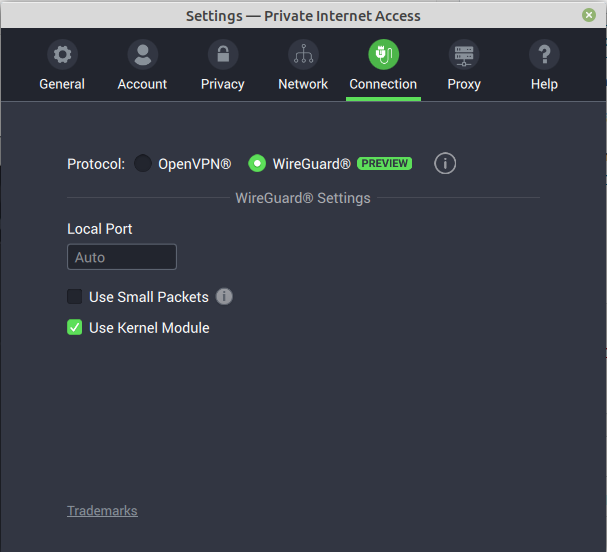
However, there are many flavours of Linux. NordVPN offers a command line client, which is also available for the Raspberry Pi (Raspbian). So, this is my favourite because I can use my Pi as a VPN router and still change countries quickly. Therefore I can also quickly move the Chromecast virtually to another country.
PIA and Surfshark also work on the Raspberry Pi, but here you have to establish the connection manually using the ovpn file. Before you choose a VPN for Linux, you should check if the client is compatible with your distribution. Ubuntu, Linux Mint and Debian are supported by all three.
The three VPN providers also provide extensions or add-ons for Firefox, Chrome (and compatible ones like Brave*). These add-ons act as a proxy and only protect the traffic of your browser. If you want to stream via browser, this is completely OK. Please note that other internet traffic will not pass through the VPN connection.
Protection against Malware
There is another important feature I want to have in my VPN client – protection against malware, trackers, phishing and an ad blocker. At home, I normally route my Internet traffic through my Pi-hole. When I’m on the road, I gratefully use the VPN provider’s ad blocker, which also protects me from malware, trackers and phishing. Both PIA and NordVPN offer such protection.
NordVPN calls the function CyberSec and PIA names it MACE. The blocker is deactivated by default in both VPNs. The reason is that some websites do not work with CyberSec or MACE. I would simply activate the ad blocker, but keep in mind that this can cause problems.
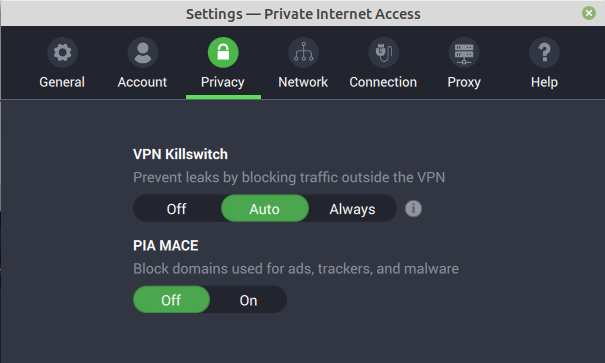

On the other hand, I also think: If a website with activated protection against advertising, malware and trackers doesn’t work, I might not even want to visit it.
The ad blockers of PIA and NordVPN work well. As soon as I leave the house, I use such features.
Protection when using hotspots / free Wi-Fi
If you like to be on the road like me, you probably use free Wi-Fi, hotspots and so on. In most countries you can get mobile internet connections relatively easily and cheaply, but the data volume is often very limited. In other words, they are suitable for e-mail, messenger services and so on, but there is too little data for streaming.
If you use free Wi-Fi (Airbnb, hotel and so on), you never know who is on the same network or who is running it. Don’t let them spy on you and just use a VPN. This is the best protection in foreign networks.
Avoid censorship
But not only the operators of the free Wi-Fi are possibly nosy. Governments also monitor Internet connections or censor them to a greater or lesser extent. In some countries, such as Egypt, VPNs are legal, but blocked. NordVPN still works because the provider uses obfuscated servers.
Bypass censorship with NordVPN*
VPNs are not illegal in China either, but only state-approved VPNs are allowed. Thus, the point of a VPN is nullified. NordVPN can also bypass the Great Firewall of China. Many VPN providers cannot bypass such blocks – only the best ones can.
In some countries VPNs are illegal. North Korea is one of them. Just check before you start your trip if a VPN is legal or not.
But the thing is: In restrictive countries, access to VPN providers is often blocked. If you want to take a VPN with you, get one before you start your trip. If you are on the road for less than 30 days, you can even travel with a free VPN – just as a hint (30 days money-back guarantee) … 😉
What is the best VPN for streaming?
As I said, there are many VPNs that are well suited. Of course, I can’t test all services that are on the market. But from my experience I can tell you that NordVPN (big discounts NOW)*, Surfshark (unlimited connections)* and PIA (very nice client)* work great for streaming. Thanks to WireGuard, PIA and NordVPN are very fast.
Both VPN providers offer a 30-day money-back guarantee. You can test both PIA and NordVPN before you buy.

Both providers also allow P2P, torrents or file sharing. Both providers have a strict no-log policy to keep your Internet activities anonymous.
As already mentioned, a high quality VPN only costs about €3 per month. That’s how much data protection, anonymity and privacy should be worth to you. Virtual Private Networks are really not expensive these days.